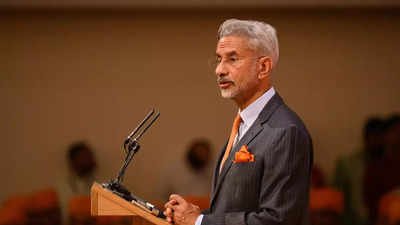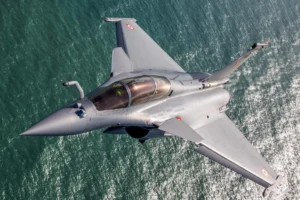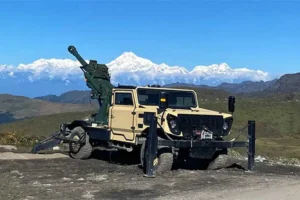Source : The Times of India

NEW DELHI: External affairs minister Jaishankar said on Friday that there has been a shift in India’s foreign policy since 2014, particularly in how the country addresses terrorism.
At an interaction with Pune’s youth during the launch of the Marathi translation of his book ‘Why Bharat Matters,’ the external affairs minister reflected on the aftermath of the 26/11 attacks in Mumbai.
He highlighted the government’s extensive deliberations following the tragedy, ultimately leading to the realisation that ‘the cost of attacking Pakistan is more than the cost of not attacking it.’
He emphasised the critical question posed by such events: ‘If something like Mumbai happens, and we don’t react, how can we prevent the next one from occurring?'”
When asked about countries with which India finds it challenging to maintain relationships, Jaishankar pointed out Pakistan as one, emphasising its proximity and stating, “for that, we are solely responsible.”
He highlighted that in 1947, Pakistan initiated an invasion in Kashmir, prompting the Indian Army to respond, leading to the integration of the state.
“While the Indian Army was engaged in its actions, we paused and approached the UN, citing the activities of tribal invaders instead of directly addressing terrorism from groups like Lashkar-e-Taiba. If we had been clear from the beginning about Pakistan’s use of terrorism, our policy would have been vastly different,” stated the EAM.
“Terrorism can’t be acceptable under any situation,” EAM asserted.
When questioned about the continuity in the country’s foreign policy Jaishankar responded, “My answer is yes. There is 50% continuity and there is 50% change. That one change is on terrorism.”
Jaishankar added, “After the Mumbai attack, there was not a single person who felt we should not have responded. But it was thought at the time that the cost of attacking Pakistan is more than not attacking Pakistan.”
If something like Mumbai (26/11) happens now and if one does not react then how does one prevent the next attack,” he asked.
“Terrorists should not feel that because they are across the border, no one can touch them. Terrorists do not abide by any rules, so the response to terrorists cannot be constrained by rules,” he emphasised.
(With inputs from agencies)





